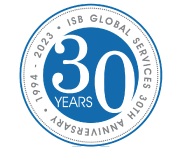Voir quelles sont les tendances dans l’industrie de la prévention des pertes de fret et de la sécurité de la chaîne d’approvisionnement
Supply Chains Across the World Bend, But Don't Break
 Complications Continue for Global Supply Chains
Complications Continue for Global Supply Chains
COVID-19 has prompted many businesses to make changes to their supply chain to maintain productivity and stop the spread of the virus. Required quarantines and testing protocols have complicated traditional supply chains delaying production and hurting many businesses’ bottom line.
How a company continues to adapt is paramount in ensuring that 2021 is a bounce-back year, unriddled with the past complications that have cost businesses thousands, ultimately hurting the end consumer with inflated prices and delayed goods. In 2020 many companies have shown incredible resilience, bending but not breaking during the COVID-19 pandemic.
The Seismic Shift to Local Production
Closed borders and restrictions have made the global economy extremely delicate, with many businesses altering their supply chains to remain productive and support their local economy. Overseas used to be a place for business owners to produce consumer products at low prices, but all that has changed with the restrictions and closures, potentially putting their supply chain staff at risk of contracting the virus.
Many businesses have had to rethink their strategy entirely, opting for local production of goods that may cost more but are secure and resilient to COVID-19 restrictions. The sudden shift has had business managers scrambling, with many consumers taking the brunt. The cost of groceries, clothing, and technology has slowly inflated, leaving the end consumer with a bill that continues to increase month after month.
 Counterfeits and Knock-offs Cause Particular Problems for Supply Chains
Counterfeits and Knock-offs Cause Particular Problems for Supply Chains
2020’s initial lockdowns spurred an entire industry dedicated to producing counterfeit goods. The perfect example was the scarcity of PPE (personal protective equipment) during the early spring months of the COVID pandemic. As supply chains took a beating with the soaring demand for PPE, those developing patented N95 masks simply couldn’t keep up, and the black market supplemented the industry. Fake protective equipment was sold en masse to industries that simply had no other option.
Further, many consumers began to horde PPE, attempting to resell the goods for a profit online. The spike in demand left supply chains in shock, leaving many consumers in the dark in regards to PPE.
Of course, without proper protection, many industries couldn’t get back to work. Hospitals, long-term care homes, and construction sites couldn’t function without protective equipment.
Few Answers for Small Business Owners
Many small businesses have been unable to compete with big-box and large corporations because they have been left with little to no option for securing their supply chains during the pandemic.
With so many fluctuations in supply and demand, small business owners are often forgotten in the mix. Suppliers focus on the big fish and secure their core business with them. This has inspired a sharp response from local entrepreneurs, criticizing government officials and lashing out in the form of digital and physical protests.
The complications continue to develop as the pandemic continues into 2021.
 Supply Chain Solutions and Security Services Offered by ISB Global Services
Supply Chain Solutions and Security Services Offered by ISB Global Services
Many companies are adapting to the COVID-19 pandemic with increased technology. Real-time data can help business owners track and identify problems as they arise and react quickly. Further, breakthroughs in automation and artificial intelligence have offered business owners a means of keeping their supply chains running without putting their workforces at risk of contracting the virus.
ISB Global Services offers clients a comprehensive cargo loss prevention and supply chain security solution that can help you maintain business and remain resilient during the pandemic. Learn more about PULSE and the suite of software products that help any business owners preserve their supply chain operations.
Contact us directly to learn more.







While we are not affiliated with or employed by these organizations, we may reference our verified status in marketing materials, proposals, and client communications to demonstrate ISB’s commitment to compliance and security.